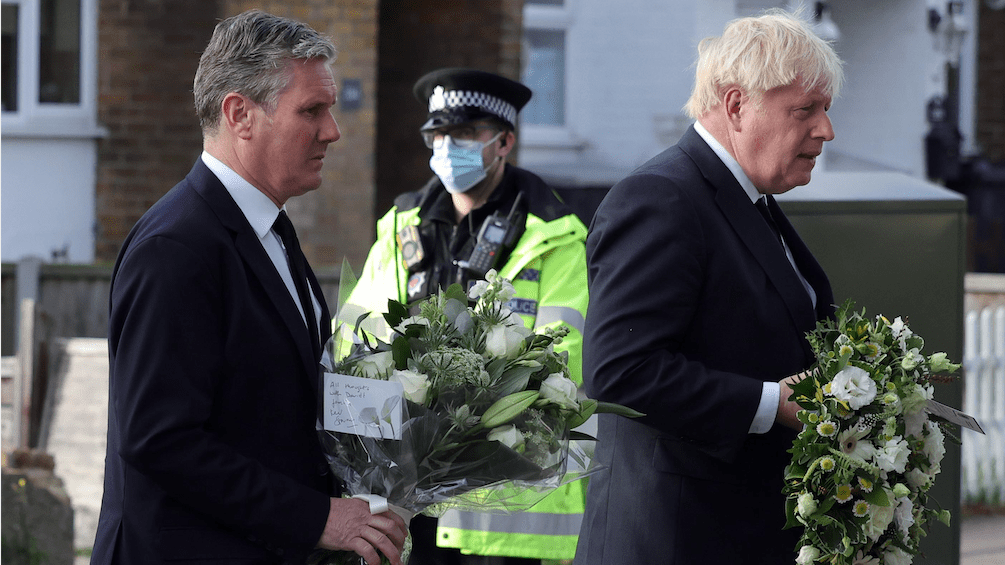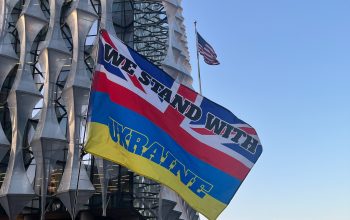For a country defined in recent years by its political divisions, Britain is never so united as in its collective grief. It’s just a shame it takes the tragic murder of an MP or a deadly pandemic to bring us closer together.
Much of the current political landscape can be defined by alignments on the political wing, or by factions and party loyalty. Voters of all ages have found themselves split down the middle by British politics. That is, until tragedy strikes in the form of deadly violence towards our elected officials.
On Friday 15 October, the country was brought together by loss, this time within the very heart of British politics. Conservative MP Sir David Amess was stabbed to death at his constituency surgery in Essex. The incident has been identified as an act of terrorism.
Yet, as shown in the Brexit referendum or the 2019 general election, many still uphold attitudes of Us and Them. Families, friends and colleagues have been deeply divided by political persuasions and fundamental values. In a society rife with keyboard warriors and Facebook trolls, it’s easy to forget that we are all citizens of the same country.
As Andy Beckett of The Guardian puts it: “Pensioners are set against millennials; nationalists against immigrants; populists against elites; rural traditionalists against city liberals.”
It would seem the consensus politics of the past is a distant memory in this not-so United Kingdom, but surely it is time for us to reunite?
It appears, however, that only crises can bring us back together. Brexiteers and Remainers, Conservative and Labour members alike understand loss.
We’ve suffered through collective grief as a community for 18 gruelling months in the wake of COVID-19, with the virus’ path of destruction affecting millions of lives indiscriminate of gender, race, class or religion.
At the time of writing, roughly 139,000 people have died of coronavirus in the UK, but should thousands of people have to die in order for us to feel close to one another? It’s a tough pill to swallow that, in this country, experiences must be shared in order to be respected.
However, in the aftermath of Sir David Amess’ death, tributes flooded in across party lines.
MP for Kingston and Surbiton and leader of the Liberal Democrats Ed Davey addressed the House of Commons following Sir Amess’ death: “This collective sorrow unites us all today… I want to reach across the isle and say to every Conservative colleague… we feel for you.”
Similarly, members of the Labour Party shared their memories of the Conservative MP.
In an interview with Lorraine Kelly, former Labour MP Paula Sherriff described his humour and humanity. “He would walk in a room and you would see that amazing smile that seemed to be ever-present, and you would never stop laughing when he was around…[and] he was a source of strength to me during my breast cancer battle,” she said.
Sherriff was in the opposing party at the time, but she acknowledged how their political difference didn’t limit their friendship. She said: “We were on opposite ends of the political sphere, but that didn’t matter to David, he was a true friend and a wonderful man.”
Much of the time, many of us are aghast by our political opponents. Twitter, in particular, is full of bitterness towards supposed nemeses. It seems extreme partisanship dominates Britain’s political landscape until a life is lost.
Yet in the wake of Amess’ murder, social media was in consensus in its mourning for the loss of a man who dedicated his career to public service, with MPs and voters alike expressing their grief on Twitter and Facebook.
It would appear that grief crosses party lines in ways policy fails to. It is troubling to see that empathy and quietly respecting alternative values is reserved for people who are no longer here to experience it.
Perhaps, then, there is something to be learned about unity from the devastation of the Coronavirus pandemic or the horrific murder of Sir David Amess. When we are brought together by tragedy, we see our foes in a new light, realising that they may not have been our enemies at all. If we can share our empathy amongst others at times of crisis, we must have the ability to respect them in peacetime too.
In this age of bitterness and political identity, we must remember that we aren’t all that different. Britain has been divided by politics in recent years, but we must consider that we may be better together after all.





